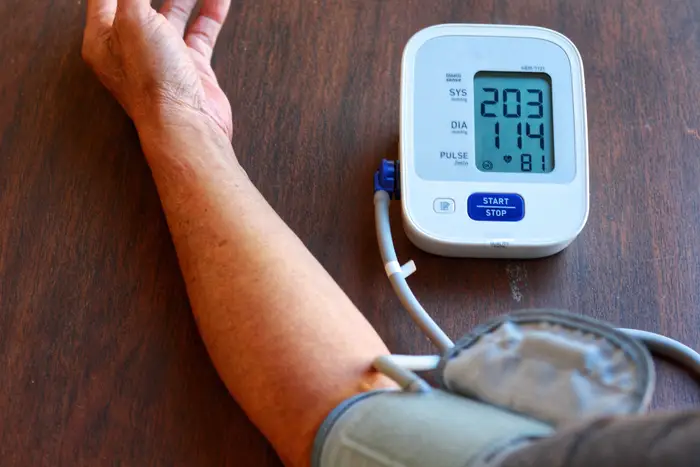Drinking water. Food. Air. Fish. It seems there isn’t any part of the globe that isn’t touched by per- and polyfluoroalkyl substances (PFAS), man-made “forever chemicals” that are slow to degrade and whose dangers to humans and animals are being studied.
Now, researchers have linked PFAS to high blood pressure in middle-aged women, adding to the long list of health risks associated with the pollutants.
A study published in the journal Hypertension looked at the health of 1,058 women between ages 45 and 56, analyzing data from annual checkups between 1999 and 2017. All had normal blood pressure when the study began, but over time, 470 patients developed hypertension.
Researchers measured PFAS in the women’s blood at the start of the study period. Women with higher blood concentrations of the chemicals were more likely to develop hypertension than their counterparts.

The risk varied depending on the concentration of different chemicals in the blood. Women with detectable perfluorooctanesulfonic acid (PFOS), a pollutant once found in products such as Scotchgard and still present in some semiconductors, paints and industrial products, were 42 percent more likely to have high blood pressure than those without exposure. Perfluorooctanoate, also known as C8, was associated with a 47 percent higher risk. It is found in everything from upholstery to clothing and food wrappers.
Exposure to multiple PFAS chemicals had a stronger effect on blood pressure, and the higher the concentration, the higher the risk. Women in the highest third of PFAS blood concentrations were 71 percent more likely to develop hypertension than those in the lowest third.
The study coincides with increased warnings about the danger of PFAS. Last week, the Environmental Protection Agency advised aggressive action designed to combat the compounds, which are associated with everything from cancer to infertility.
“Women seem to be particularly vulnerable when exposed to these chemicals,” said Ning Ding, a postdoctoral epidemiology fellow at the University of Michigan School of Public Health and the study’s lead author, in a statement. She said exposure could be an “underappreciated risk factor” for hypertension.
Although more work is needed to explore links between the chemicals and high blood pressure, the researchers write that PFAS are a “potentially modifiable” risk factor. But given that they are both ubiquitous and long-lasting, modifying risk could be a massive challenge.
Source: https://www.washingtonpost.com/health/2022/06/20/pfas-hypertension-women/


